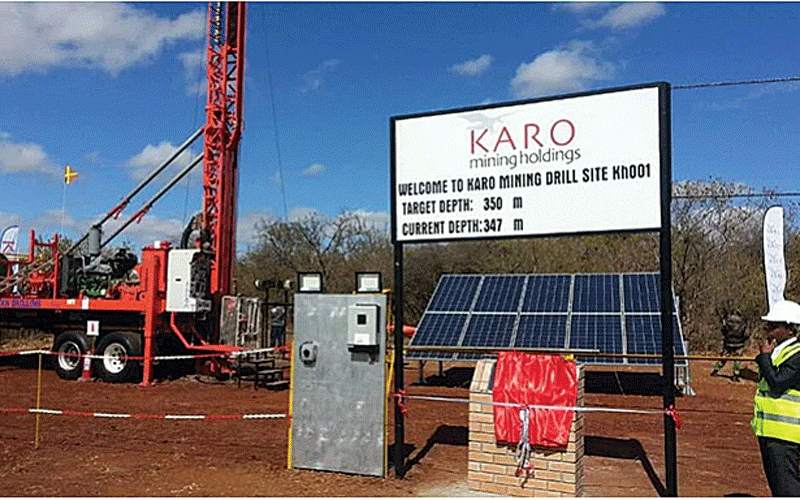
Honestly how do you sit there and ask or even demand that Zimbabwean workers, of all people should be happy?
How can you be so insensitive to the extent of turning a blind eye to the problems of a people, our poor workers who are suffering in the workplace? How do you expect anyone under the sun to be happy in the Zimbabwean workplace?
This is what you get when you attempt to fix the workplace by challenging people to step out of their comfort and false zones of happiness.
It is easy to cling to falsehood and claim victimhood. We easily get to sing ‘This world is not my home...’ Today I am challenging you to reconsider that approach to life and work and begin to explore the possibility of this world being your home.
Once that happens then I can get your audience regarding us being serious about being happy here in this world. There is nothing sinful about being happy, manifesting what we desire, having wealth, eating good food, driving good cars and getting promoted in the workplace.
We miss the mark though when we think that all these manifestations are the ultimate source of happiness. I can bet my last dollar that you dear reader know of many people who have all these things but have not known happiness.
These may give them dopamine hits here and there, but sustainable happiness remains elusive. So, what exactly is the problem? Here is an interesting scientific truth; on the one you can have these things but if you expect them to automatically give you happiness you will be disappointed. On the other hand, you can have happiness and if it is legitimate happiness, you will use it to gain these things.
It is that principle we read about in the big book, the Bible. ‘Seek ye first the kingdom…’ I can argue till cows come home that this kingdom is happiness. Happiness might not sound enough even, and I accept that but for our purposes we will use it to mean that which the same book refers to as ‘no eye has seen, nor ear heard… This is how deep this matter is and sadly we are far from it most of the time because we are not coming to terms with the fact that there are working and non-working methods of getting there.
- Re-imagining the workplace: A trumpet call for a change of attitude this year
- Re-imagining the workplace: We are in deep trouble in our challenging workplace
- Re-Imagining the Workplace: Happiness can activate things but things cannot activate happiness.
- Re-Imagining the Workplace: Happiness and productivity; concluding remarks
Keep Reading
A person walks to the workplace hoping to derive happiness from it. I remember going to the workplace for the first time with my hope and excitement up there. I was young and had a lot of dreams, dreams to buy big things, cars, houses and many other things.
The biggest myth and illusion I held was that these would make me happy and joyous. I kept growing, starting first as a teacher and growing to become a people management and development practitioner. I even doubled up as a television actor and writer. Wow, that meant I had become some kind of a celebrity. I had tongues wagging here and there when I passed. I heard remarks such as ‘that’s him…’ But there was still that yawning gap inside me and I continued to seek. It was not enough, and I was not happy.
In an attempt to get certain things that were not available immediately due to limited funds, I went into debt and got entangled in it. Then I jumped onto another illusion of the belief that I needed to get out of debt to be happy. This meant that I postponed my happiness to that time when I was out of debt. Poor me!
This tweet from a good human being who means well, Uncle Ari @MazeDaMouth…captures the illusion aptly. I have never come back from any holiday feeling relaxed, refreshed and reinvigorated to get back into work. I come back with the taste of freedom, still fresh in my mouth, a renewed hatred for work, and a strong suspicion that this is not what I should be spending my life doing.
Does this resonate with your own story dear reader? I hope not, but many have given me that feed that the workplace has failed them because they have gone there expecting bliss only to get this tragedy that Uncle Ari shares.
This, sadly, happens within many other institutions like, love, marriage, friendship, church, etc. Many come back disillusioned and some even dead. It is the fallacy of manifestation that makes this worse, the belief that if I get that, I am covered in terms of happiness. There is absolutely nothing wrong with manifesting but when it’s believed to assure one of happiness, then there is a problem, a big one.
Let’s take a few steps backwards and remember our childhood. There was a time when we did not think compulsively or with fear, but we thought curiously and freely. What happened? Adults imposed their fears on us and we were stopped from that free and happy thinking. We could have done anything at that level, even play with snakes but we kept having our hands burnt in the hands of adults and we got to a point where we had to scheme to survive. This is where the working formula of happiness was lost.
Most adults do not know how to be happy. They all have had compulsive, fearful and survival thinking replace curious, creative, and happy thinking. Research has found that even the structure of the brain supports the phenomenon that certain parts of the brain are responsible for this survival mode of living and operating.
We are psychosomatic beings and about this, Sadguru has this to say in his book Karma. The karmic mechanism is ceaseless. Every mental fluctuation in you creates a chemical reaction, which then proceeds to create a physical sensation. This sensation, in turn, reinforces the chemical reaction, which then strengthens the mental fluctuation.
Over time, your very chemistry is determined by a series of unconscious reactions to sensory and mental stimuli.
And as far as he is concerned, Karma means we are the creators of the blueprint for our lives. It means we make of our own fate. When we say, ‘this is my karma,’ we are saying, ‘I am responsible for my life.
What this means is that there are two types of human beings when it comes to happiness; one who leaves everything to fate and believes something needs to happen for them to be happy; that they need more money, a new position at work, a new manager, a new office or car to be happy and begin to work productively. And another who takes responsibility for their happiness and leaves nothing to chance because they know the working formula for activating that happiness which would go on to enable them to bring happiness to work and of course high levels of productivity. Next week I indulge you further by taking you through the step-by-step process of activating happiness from the inside out and improving productivity through this process.
- Bhekilizwe Bernard Ndlovu’s training is in human resources training, development and transformation, behavioural change, applied drama, personal mastery and mental fitness. He works for a Zimbabwean company as human capital executive, while also doing a PhD with Wits University where he looks at violent strikes in the South African workplace as a researcher. Ndlovu worked as a human resources manager for several blue-chip companies in Zimbabwe and still takes keen interest in the affairs of people and performance management. He can be contacted on [email protected]










